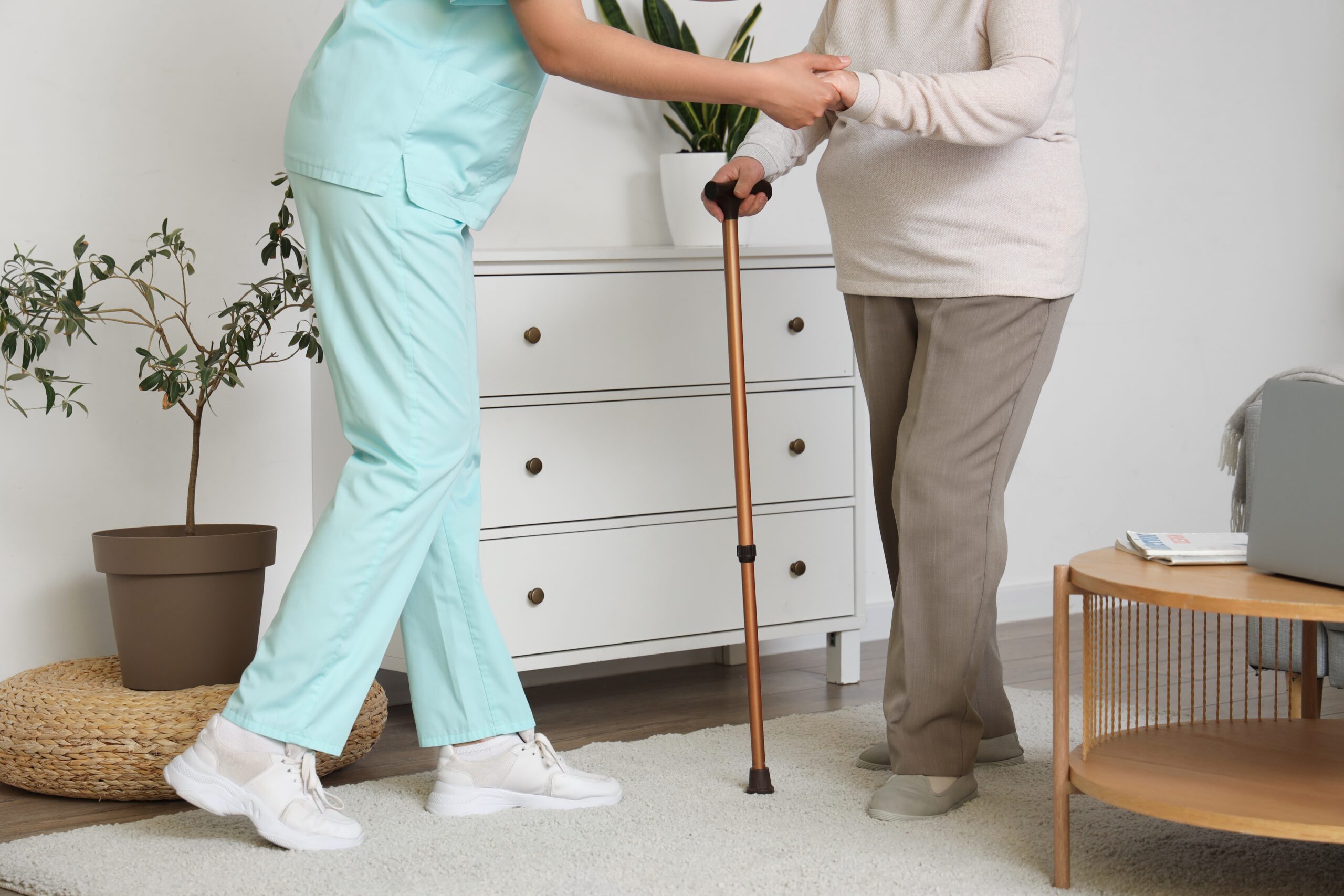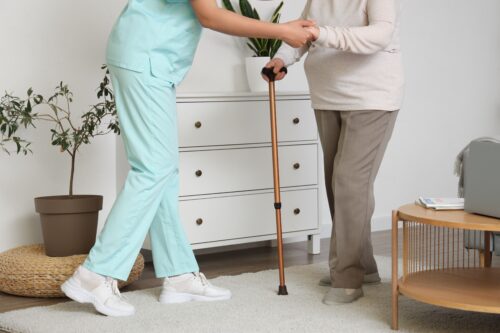
One of the most painful realities of elder abuse in dementia patients is that its signs can look almost identical to disease progression. A senior who becomes withdrawn, irritable, confused, or even bruised may be assumed to be “just declining.” But these same symptoms can reflect abuse or neglect.
Recognizing signs of elder abuse in dementia patients is critical. Small changes in appearance, behavior, or mood can be early clues. When someone cannot speak for themselves, what you observe may be the only chance to stop harm.
Physical Signs of Abuse
Seniors with dementia may be unable to describe pain, discomfort, or how an injury happened. That makes it important to check for physical indicators of abuse or neglect during every visit. These signs usually provide the first confirmation that something is wrong inside a care facility.
Start with injuries. Unexplained bruises on the upper arms, inner thighs, back, or chest—areas less likely to be injured in typical falls—should raise immediate concern. Note if the bruises look different in age or size, which could suggest more than one incident.
Also watch for physical signs like:
- Marks on wrists or ankles that may indicate improper restraint use;
- Bedsores on the lower back, hips, or heels;
- Noticeable weight loss over a short period;
- Dry mouth, low energy, or other signs of dehydration;
- Unwashed hair, dirty clothing, or body odor that point to poor hygiene; and
- Long fingernails or unbrushed teeth, if staff aren’t helping with grooming.
When these physical issues appear and are explained away without detail, or not addressed at all, it may point to abuse.
Behavioral Signs That Raise Concern
Abuse doesn’t always leave marks on the body. In many cases, the only noticeable signs are behavioral, and they can be easy to overlook if they’re mistaken for typical symptoms of dementia.
Take note if your loved one:
- Resists care they used to accept, like eating, bathing, or taking medicine;
- Stops talking or avoids eye contact when certain staff members are nearby;
- Repeats small actions nervously, such as rocking, tapping, or fidgeting;
- Pulls away from conversations, activities, or any form of touch;
- Says things like “I’m scared” or “Don’t leave me,” even when nothing obvious has happened; or
- Becomes unusually tense, on edge, or withdrawn for no apparent medical reason.
These behaviors, particularly if new or unexplained, can indicate that something in the care environment is causing distress.
Emotional and Social Withdrawal
Abuse of the elderly with Alzheimer’s and other types of dementia isn’t always obvious. When seniors with dementia suffer from emotional neglect, they often begin to fade from their surroundings—not just because of the disease, but because no one is engaging with them as a person. Over time, a once talkative or curious resident may grow silent and disconnected.
This kind of emotional withdrawal can be incredibly harmful. Seniors in memory care settings rely on regular interaction, reassurance, and a sense of belonging to feel safe. When that emotional support disappears, residents may appear lost, flat, or shut down.
Signs of emotional and social abuse include:
- Sitting alone for long periods, with no attempt by staff to engage them;
- No longer responding to greetings or familiar faces, not out of confusion, but due to isolation;
- Minimal or one-word replies, especially when they used to speak more freely;
- Withdrawal from group activities, or being routinely left out altogether;
- Repeated statements like “Nobody cares” or “I don’t matter”; or
- Consistent avoidance from staff, or being left in rooms without stimulation or social contact.
These signs often develop gradually, making them harder to spot at first. If you notice your loved one seems emotionally flat, isolated, or disengaged over time, it may reflect symptoms of abuse in memory care residents, not just the natural course of dementia.
What to Do If You See Warning Signs
Nursing home abuse of dementia patients isn’t always easy to prove, but you don’t have to wait for certainty to take action. Subtle shifts in your loved one’s appearance, mood, or behavior may be the only indications that something is wrong. Families who visit often, ask questions, and trust their instincts play a crucial role in protecting their loved ones and others in the facility.
Here’s how you can respond if you suspect something isn’t right:
- Visit at different times of day, including evenings and weekends, to get a fuller picture of the care environment;
- Watch how staff interact with your loved one and how your loved one reacts in return;
- Pay attention to specific behaviors, like a sudden change in mood when a staff member enters the room;
- Keep a detailed log of injuries, emotional changes, or unusual responses, use dates, photos, and descriptions whenever possible; and
- Ask direct questions about daily care routines, assigned caregivers, and any incidents that haven’t been reported to you.
When speaking with nursing home staff or administrators, stay calm, but be clear and specific. Consider asking:
- Can you walk me through their care routine over the last 48 hours?
- Why wasn’t this bruise documented in the chart?
- Who was assigned to care for my loved one on Tuesday afternoon?
Always write down their answers and request access to care logs, medical notes, or shift schedules. If staff seem reluctant to provide answers or if their explanations keep changing, it may indicate a deeper problem.
If you believe your loved one is in immediate danger, call 911 right away. In Missouri, contact the Missouri Department of Health and Senior Services for ongoing or unresolved concerns. In Kansas, you can report concerns to the Kansas Department for Children and Families. either case, you can consult an elder abuse attorney for guidance.
Legal Help for Families Facing Nursing Home Abuse
When a memory care facility fails to protect a resident, Dempsey Kingsland & Osteen works to uncover what happened and why. Our attorneys and on-staff medical professionals expose breakdowns in care and patterns of neglect to hold facilities accountable.
If your loved one is showing signs of unexplained injuries, emotional distress, or abuse in a nursing home, Contact us today for a consultation at (816) 421-6868.

